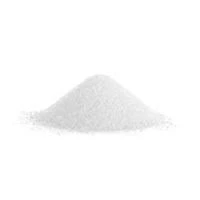
emulsifier 475
Understanding Emulsifier E475 A Comprehensive Overview
Emulsifiers are essential ingredients in the food industry, playing a crucial role in enhancing the texture, stability, and appearance of various products. Among these emulsifiers is E475, also known as Polyglycerol Esters of Fatty Acids. This additive has gained significant attention due to its versatility and efficacy in both food and non-food applications.
What is E475?
E475 is a food-grade emulsifier derived from natural fatty acids and glycerol. It functions primarily by stabilizing emulsions, which are mixtures of water and oil that typically do not combine well. The ability to create stable emulsions is vital in many products, such as mayonnaise, margarine, salad dressings, and various processed foods. By reducing the surface tension between oil and water, E475 helps to ensure that these ingredients blend seamlessly, resulting in a smooth and creamy texture.
Applications in Food Products
The culinary world benefits widely from the use of E475. In the production of baked goods, for instance, E475 can improve dough stability and extend shelf life by retaining moisture. Its emulsifying properties allow for a consistent crumb structure, enhancing both the flavor and appearance of breads and pastries.
In dairy products, such as ice cream and cheese, E475 helps achieve a desirable creaminess while preventing the separation of fat. When utilized in sauces and dressings, it ensures a uniform mixture, enhancing the overall mouthfeel and enjoyment of these condiments.
emulsifier 475

Moreover, E475 is not exclusive to food applications. It is also used in cosmetics and pharmaceuticals to stabilize formulations, making it a multi-faceted compound that crosses various industries.
Safety and Regulations
E475 is deemed safe for consumption and is approved by food safety authorities, including the European Food Safety Authority (EFSA) and the U.S. Food and Drug Administration (FDA). The acceptable daily intake (ADI) for E475 has been established, ensuring that consumers can enjoy products containing this emulsifier without health concerns. However, as with all food additives, continuous assessments are essential as new research emerges.
Environmental Considerations
As the demand for clean label products rises, consumers are increasingly concerned about the origin and processing of food additives. The sourcing of raw materials for E475 typically involves plant-based oils, making it a more sustainable option compared to animal-based emulsifiers. Many manufacturers are now emphasizing the use of non-GMO and organic sources for their emulsifiers, aligning with the growing consumer preference for transparency in food production.
Conclusion
In conclusion, E475 serves as a vital emulsifier in the food industry, contributing to the quality, texture, and stability of a wide range of products. Its versatility extends beyond food applications, making it a valuable ingredient in various sectors. With its established safety profile and potential for sustainable sourcing, E475 is likely to remain a prominent player in the realm of food additives for years to come. As consumers continue to seek high-quality, enjoyable, and safe food options, emulsifiers like E475 will play an indispensable role in meeting these demands.
-
Sodium Dichloroisocyanurate Safety Handling ProtocolsNewsJul.29,2025
-
Mining Chemicals for Copper Extraction Processes GuideNewsJul.29,2025
-
Fertilizer for Sale Shipping and Storage TipsNewsJul.29,2025
-
Dimethyl Disulfide as Sulfurizing AgentNewsJul.29,2025
-
Benzotriazole Safety Data Handling and Storage GuidelinesNewsJul.29,2025
-
Ammonium Bicarbonate Safety Handling Storage GuidelinesNewsJul.29,2025
-
The Transformative Role Of Trichloroisocyanuric Acid in Water TreatmentNewsJul.23,2025
Hebei Tenger Chemical Technology Co., Ltd. focuses on the chemical industry and is committed to the export service of chemical raw materials.
-

view more DiethanolisopropanolamineIn the ever-growing field of chemical solutions, diethanolisopropanolamine (DEIPA) stands out as a versatile and important compound. Due to its unique chemical structure and properties, DEIPA is of interest to various industries including construction, personal care, and agriculture. -

view more TriisopropanolamineTriisopropanolamine (TIPA) alkanol amine substance, is a kind of alcohol amine compound with amino and alcohol hydroxyl, and because of its molecules contains both amino and hydroxyl. -

view more Tetramethyl Thiuram DisulfideTetramethyl thiuram disulfide, also known as TMTD, is a white to light-yellow powder with a distinct sulfur-like odor. It is soluble in organic solvents such as benzene, acetone, and ethyl acetate, making it highly versatile for use in different formulations. TMTD is known for its excellent vulcanization acceleration properties, which makes it a key ingredient in the production of rubber products. Additionally, it acts as an effective fungicide and bactericide, making it valuable in agricultural applications. Its high purity and stability ensure consistent performance, making it a preferred choice for manufacturers across various industries.











